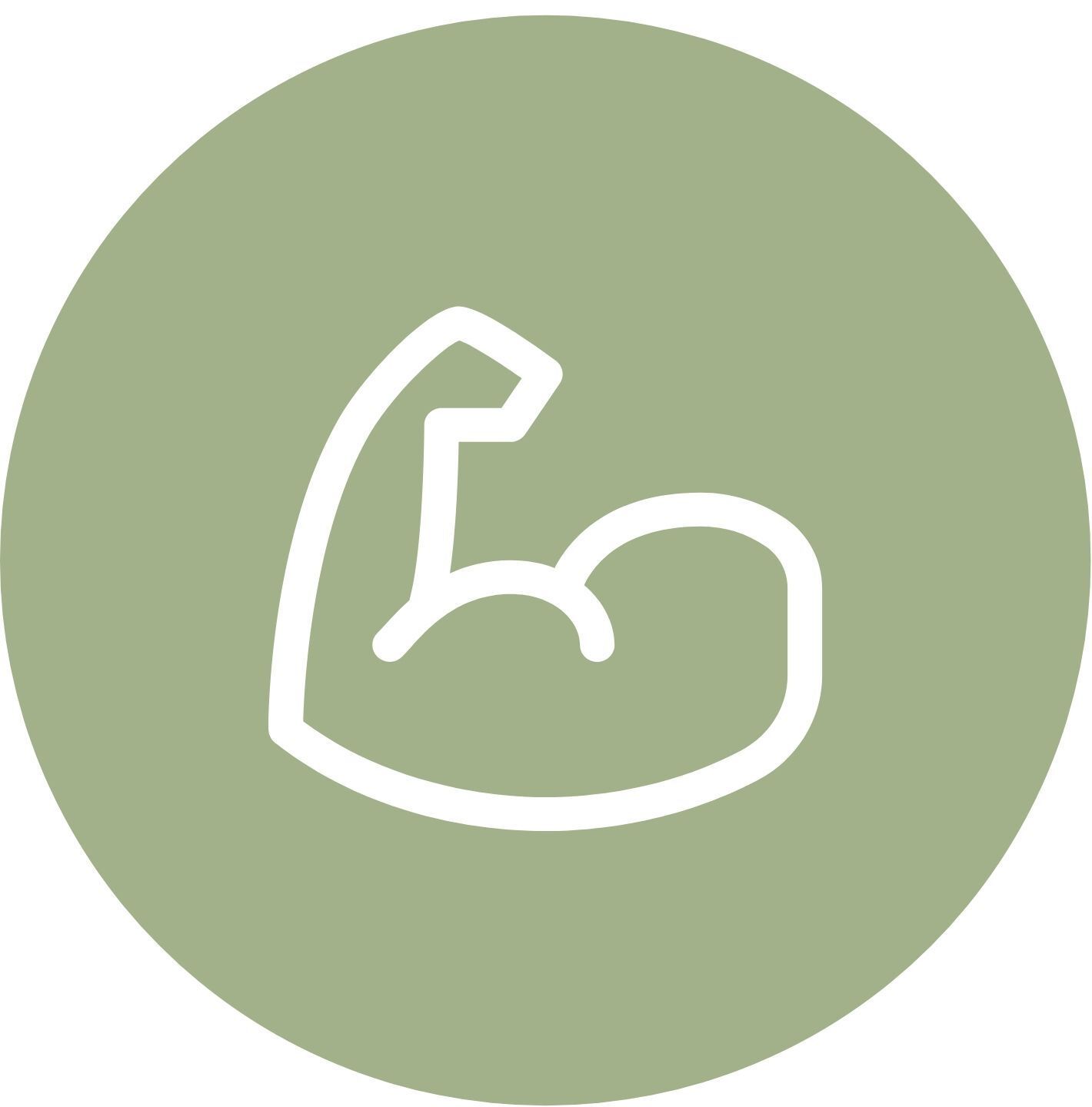The Livelong Woman is your Wednesday dose of science-backed insights on living longer, healthier, and stronger, all through a woman’s lens. This week, we’re discussing why muscle matters so much for women and how to redefine midlife as a time of power.
This newsletter focuses specifically on women’s health and longevity. If that’s not relevant to you, no problem—you can opt out of just the Livelong Woman while staying subscribed to everything else.
Introduction

Raise your hand if you own a weighted vest. 🙋🏻♀️I asked for one a few Christmases ago when I started hearing about how they helped with bone and muscle health. I also work with a trainer and try to squeeze in yoga weekly. Do I hit all of that? Pfft. No way.
But after researching this issue, I’m going to try a little harder. Because muscle isn’t just about strength—it’s one of the most powerful predictors of how long, and how well, we live.
Strength & Fitness


Most advice for women lumps millions of bodies into one bucket: “lift weights,” “avoid carbs,” “walk more.” But when we talk about fitness recommendations for women versus men, or even for menopausal versus non-menopausal women, it’s too large a group. “Fitness should be based on an individual,” says Dr. Mark Kovacs. “Yes, there are differences, but those differences aren’t consistent across such a broad category.”
Muscle mass and bone density do decline with age in every woman, though. Beginning in our 30s, women start losing 3–5% of muscle mass per decade, called sarcopenia. After menopause, that rate can double, thanks to falling estrogen. The result isn’t just weaker legs or looser sleeves; it’s a slower metabolism, lower energy, and a higher risk of falls and blood sugar swings.
“Strength training is the biggest change in exercise recommendations over the last 15 years—for women especially—because they get the most benefit from it during midlife and beyond.”
While there isn’t a one-size-fits-all answer, there are ways that help reverse and ideally improve muscle and bone deterioration, says Kovacs. For example, studies show that resistance training in perimenopausal and postmenopausal women consistently improves muscle strength and functional fitness.
The good news is that women (even those in their eighties) can rebuild strength and reverse much of what’s been lost with just a few heavy, consistent sessions a week. Here’s Dr. Kovacs’ simple longevity formula for women:
Strength training: 3 days per week, 30 minutes each (2 days minimum—and “heavy” is probably heavier than you think)
Zone 2 movement: daily walks that can be done in 10–15-minute mini-sessions, ideally after meals
High-intensity intervals: 1–2 times a week for heart and lung health
Power moves: small bursts of low-level plyometrics (think: jump squats, box jumps, or burpees) to improve balance and coordination
Protein: enough to support muscle repair and recovery
One last thing to keep in mind: If strength is medicine, then consistency is the dose.
Poll


How often do you incorporate strength training into your weekly exercise?


Dian Griesel, PhD, is a psychologist, author of over 15 books, and longevity advocate known for her holistic approach to health and aging. Through her writing and coaching, she encourages women to redefine midlife as a time of power, balance, and renewal. We spoke with her about what it means to age with strength, from cellular kindness and friendship to the real secret of longevity: joy.
Oxytocin, the hormone of connection, is profoundly anti-aging.
Q. What habits or health markers matter most for aging well, beyond appearance?
A. Our appearance is a mirror, not of vanity, but of vitality. Skin, hair, energy, posture. All quietly tell the story of what’s happening inside our bodies and minds. Aging well begins with what I call cellular kindness: sleep that restores, hydration that nourishes, movement that stimulates, and thoughts that calm instead of criticize. The most critical markers? Energy levels, emotional resilience, digestion, strength, and curiosity.
Q. What longevity practices actually make sense for women’s bodies?
A. Much of the biohacking space assumes a 25-year-old male metabolism running on testosterone, caffeine, and competition. Women’s biology operates more rhythmically and responsively. The real hacks are consistency, nourishment, and recovery: strength training for bone and muscle integrity, protein that matches muscle needs, sunlight to support circadian rhythms, mindful stress modulation, and one often-overlooked longevity factor: friendship. Oxytocin, the hormone of connection, is profoundly anti-aging.
Q. How can women build and maintain strength without overtraining or under-fueling?
A. Muscle is medicine. It stabilizes hormones, supports bone density, boosts metabolism, and improves cognitive health. Two to three solid strength sessions a week, paired with daily movement, is sustainable and effective. Under-eating is one of the biggest mistakes I see. Protein and fresh foods are gifts to your future self. Fuel the muscle, rest the muscle, respect the muscle, and it will protect you for life.

The Watchlist



The Wonder of Weightlifting — Dr. Jaime Seeman:
OB-GYN and former athlete Dr. Jaime Seeman makes a compelling case for why women should treat weightlifting not as a vanity project, but as a vital sign. In under 15 minutes, she explains how resistance training improves hormones, metabolism, mood, and longevity, and why the barbell might be modern medicine.

Men’s Brains Shrink Faster— What That Means for Alzheimer’s:
A new study reviewed in Scientific American explores why women’s brains appear to age differently from men’s and what that might mean for Alzheimer’s risk. The piece dives into how hormones, inflammation, and brain structure protect women early in life but may backfire after menopause. It’s an interesting look at the biological trade-offs behind longevity and cognition.

Why Women Live Longer — The Science of Health Podcast:
Why do women consistently outlive men, and what can both sexes learn from that gap? This conversation blends genetics, hormones, and behavior with a dose of humor, unpacking how estrogen, stress resilience, and social connection shape lifespan. This listen reminds us that longevity isn’t luck. It’s biology plus choices.

Poll Response
We asked, you answered:
Do you currently “stack” supplements as part of your wellness or longevity routine?
Nearly 70% of you responded, “Yes. I have a specific stack of supplements I take daily.” But there were questions about which supplements could be harmful and which brands others in the community preferred.
We created the WhatsApp Livelong Woman Group just for this reason. It’s a safe space to ask questions like these and share resources with fellow readers. We’d love to have you join us there to discuss supplements, fitness, and all things longevity.
How was today's newsletter?
The information provided about wellness and health is for general informational and educational purposes only. We are not licensed medical professionals, and the content here should not be considered medical advice. Talk to a doctor before trying any of these suggestions.









